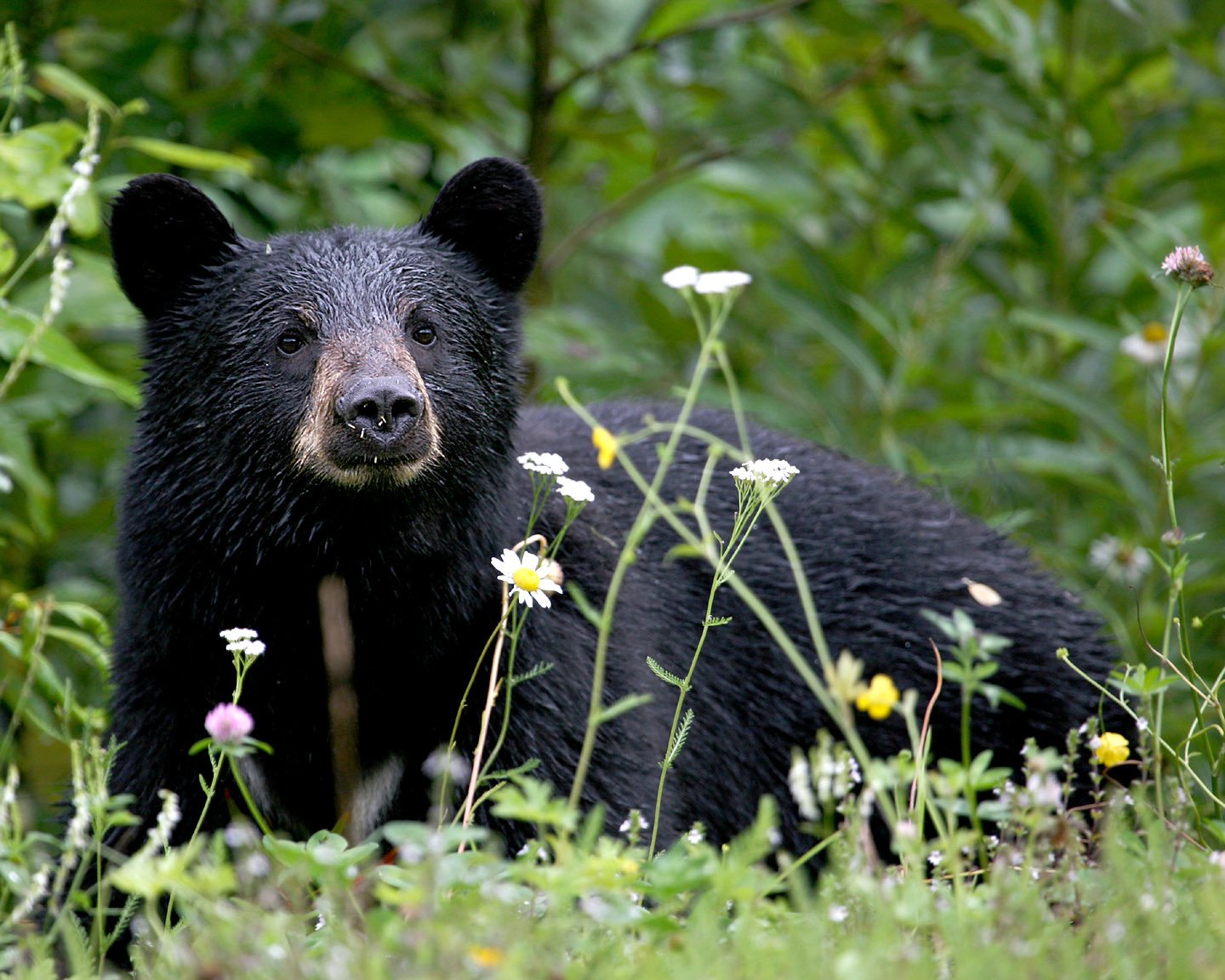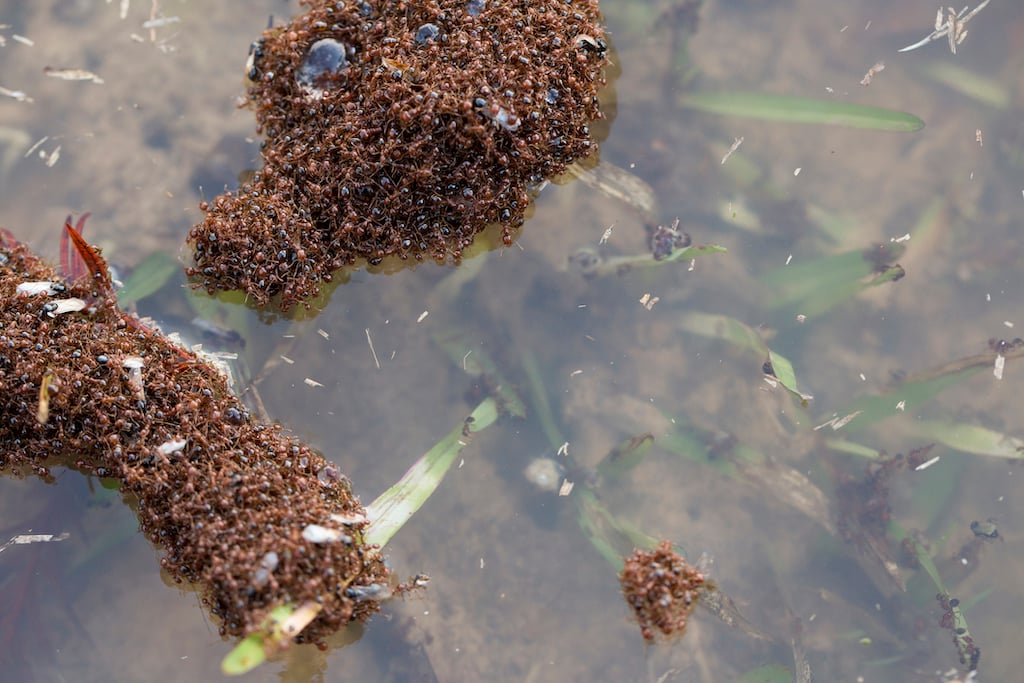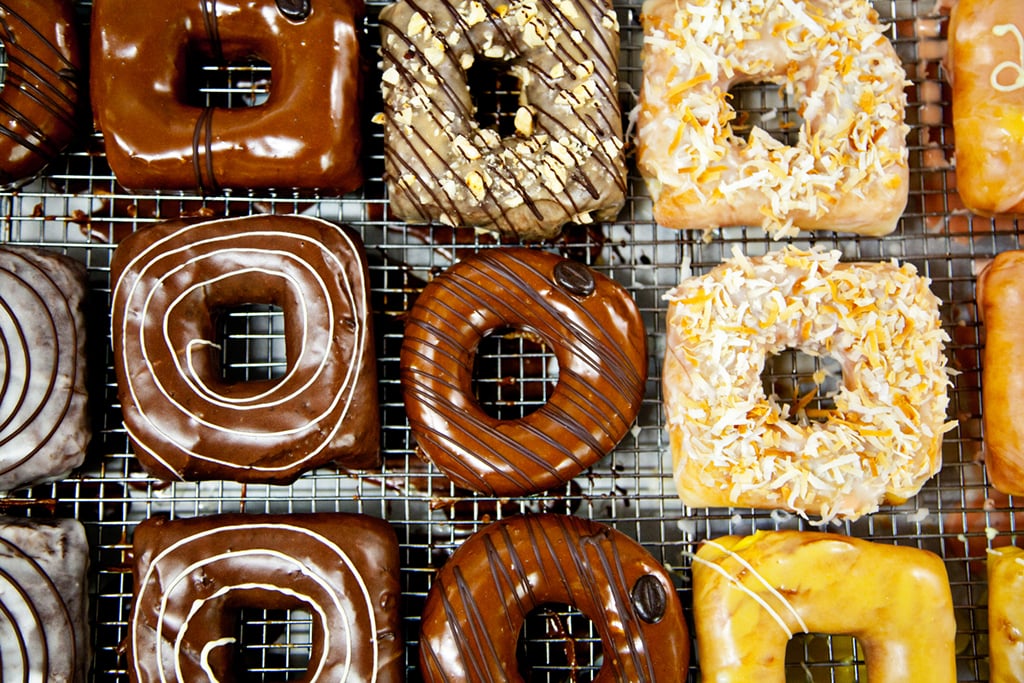This morning, Washingtonians were riveted by a black bear wandering around Brookland. It crossed streets, loped over lawns, climbed a tree, ate leaves, scratched its little butt on a branch, licked its lips, and stared—with what may have been bewilderment—at the crowd gathering below. Eventually, after MPD officers shot it with a tranquilizing dart, the bear clambered down from the tree and briefly disappeared into the neighborhood before the authorities apprehended it, reportedly slumbering in a nearby backyard.
To find out what our furry friend was up to, we called an expert: Rich Goszka, a retired game warden with the Virginia Department of Wildlife Resources, who used to work with urban bears in New Jersey. Goszka has some bonkers bear stories, bizarre bear facts, and a little insight—purely speculative, as he was not involved in today’s bear response—into what may have happened with our newest local celeb, whose name is allegedly “Franklin.”
Can you first tell me about your experience with bears?
Sure. In the ‘90s, I was a wildlife control officer with New Jersey Fish and Wildlife. We had a bear response team. If there was an incident, or a bear in an urban area, we had our vehicles prepared with cages, maybe a trap if we needed it, and our tranquilizing gear. The job entailed bear/human conflicts, where bears might cause public safety issues. People don’t think New Jersey has a high bear population, but it did have a high density of bears amongst a high density of people.
What is your favorite bear response story?
So, we were called one evening to the state capital of Trenton. It was well into the night, and a bear had ended up in a tree, a big maple tree. There were actually power lines running through the tree, so I had the power company turn off the power so that there wasn’t a chance of electrocution. That had been an issue in Arizona at one point with a bear.
Then we darted it, and when you dart a bear, it’ll typically go to the top of the tree. They tend to override the drug when they’re excited. So I got into the power company’s bucket truck, lifted myself up, and at that point the bear began to tumble out of the tree. We had a net set up at the bottom to catch it, but the bear actually grabbed the power line. It was dangling from the power line by its teeth.
Wait, it was literally supporting itself with its teeth? After being tranquilized?
Yep.
How is it possible that a power line could support the weight of a bear?
Oh, a power line is pretty sturdy. It didn’t even sag. It was a pretty heavy duty power line. The bear bit into it, and it was just hanging there.
So I climbed up onto a big branch of the maple tree—I could stand on it—and started pushing the bear [to make it fall into the net] and it started swatting at me.
What was it like to be swatted at?
Black bears don’t have claws like a grizzly bear, so it didn’t do any damage to me, but it was hitting my shoulder, swinging at me. Eventually it fell down into the net and fell back asleep. And it happened to be filmed by somebody with a video camera—this was years ago—and it ended up on TV.
So, why do things like this happen? What brings bears to urban areas?
Well, this time of year—we’re talking about May, June, July—we’re getting into the breeding season. Young males are the ones you typically find wandering into urban areas because, during the breeding season, they want to avoid large boars—which are male bears—that could end up killing them. So they disperse and try to find their own territory. Sometimes they follow the rivers, which are all typically wooded, and then they pop out. When they get in trouble, they tree themselves, then a crowd gathers.
Is that your sense of what might have happened in DC today?
Yeah, it’s probably a two-year-old male that got dispersed, trying to find his own territory. [Per news reports, Goszka seems to be correct.] They want to feed heavily because they’ve come out of hibernation and they’re looking to put on weight through the summer. The smell of human development entices a lot of bears.
What typically happens to a bear once it’s apprehended?
When I was doing it, we were always concerned about the bear’s health, so we would make sure he was cooled down and put in a quiet place. We’d take their vitals. The drugs we used back then, we’d have to put salve in their eyes, just to keep their eyes lubricated because they didn’t blink. Then, we would take them to the two main watersheds in Jersey—the Delaware or the Passaic watershed. We’d move them to an area where other bears were, out of harm’s way, probably on state property, and release them.
What other good bear stories do you have?
We had a bear on the Appalachian Trail in New Jersey, this female with two cubs. She began to break into cars to get food. People would bungee their coolers, but she would open their coolers and the cubs would go in and pull the food out.
Then she went out to where the Boy Scouts were camping and she was bluff charging the Boy Scouts. They were eating hot dogs, and they would drop them, and the cubs would scurry along to pick up what was left on the ground.
What does it mean to “bluff charge” somebody?
If you come near a bear and they don’t want you around, they’ll start popping their jaws—you’ll hear a popping sound—and they’ll stomp their feet. Then, in some cases, they just come at you and veer off at the last second, trying to scare you out of their area.
That sounds scary for the Boy Scouts.
Yep. She was doing it on purpose to get them to drop their food so her cubs could eat it. So we had to move her and her cubs to the Passaic watershed, but then she started breaking into houses with her cubs. So we were able to capture her once again.
What happened to her?
In this case, her cubs were taken and rehabilitated, but she was actually put down because we couldn’t get her to stop breaking into places and causing a public safety issue.
And the bear cubs were learning this behavior from her?
Yeah. So we do a technique called “adverse conditioning” where we capture bears and haze them with chemicals like pepper spray, noisemakers, rubber buckshot. It’s to condition them that people are not good to be around.
Of course, humans are the biggest factor in this case. They see a bear, and what do people want to do? Feed the bears. But once you feed bears, they become habituated and we have to go in there and deal with that learned behavior.
I can’t imagine feeding a bear instead of running away from it.
Oh, yeah, bears would come into neighborhoods and people would be out there with donuts, bread, all kinds of things.
You saw people giving bears donuts?
Oh, yeah. A bear will come into the neighborhood and people are running out with plates of food so they can get a picture of it.
What’s the weirdest thing you’ve ever seen someone feed a bear?
Well, the weirdest thing I’ve seen bears eat is actually their favorite thing: When people had infants, bears would eat the diapers.
Why?
Something with the smell.
What other weird things do people do to bears?
There are things we are seeing where bears are getting mange, and we have people trying to actually treat the mange on their own by giving these bears Ivermectin, which is something you use in most species to treat mange.
But of course, we don’t want amateur homeowners giving wildlife drugs, because we don’t know what they’re giving them and it ends up in the food chain, and there’s all kinds of other impacts. But we see people putting Ivermectin in peanut butter sandwiches trying to treat bears with mange.
What should we do to avoid drawing bears into the city?
Bears are attracted to food sources such as garbage, gas grill grease—anything like that is going to bring them in, so you want to take care of all those things. And one thing is that bears love birdseed. People that feed birds in the summertime should be wary that it will attract bears. They will come in to feed on your bird feeder.
They’re a unique creature. In an ever-developing society, where we’re fragmenting habitat, they’re still here. The bear population hasn’t really gone down. So they have more and more interactions with people. They’re going to be here. They adapt.


















